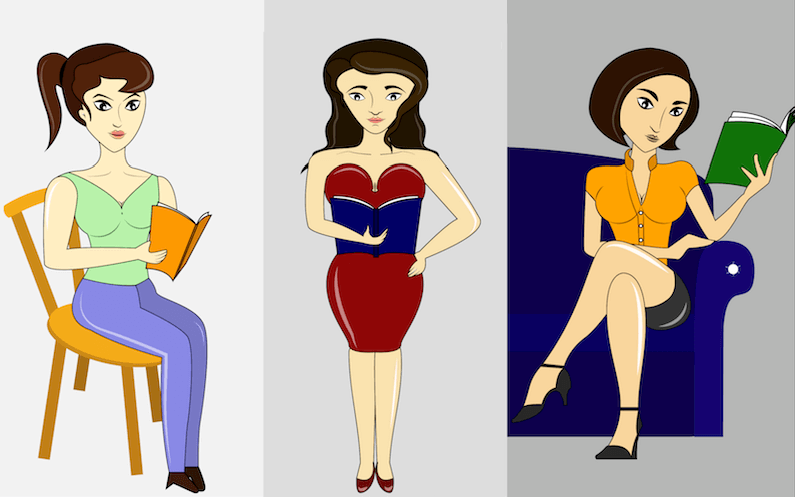Essay
After All, This Is Why We Read
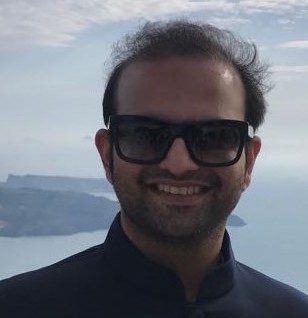
Nirbhay Kanoria
August 10, 2018
Books have recorded history, told stories, spoken of great romances and terrible wars, educated mankind since time immemorial, and despite the advent of the internet, not lost their relevance even for a moment. Is it really a wonder that there is a day to celebrate those who dearly love their books, the aptly named ‘Book Lovers Day’?
To celebrate Book Lovers Day, we decided to spend some time talking to three lovely ladies, all of whose lives are deeply connected to books, to try to understand why they read. What made them start reading and what makes them so inexplicably hooked on to it that not a day goes by without them reading or talking about books. While it would be nearly impossible to fit why one reads into a few pages, let alone a few sentences, these conversations resulted in some real food for thought.
Then
Whenever people ask me why or how I started reading, I feel perplexed because I never seem to have just one answer. Maybe, I started reading since I used to wake up early and had no one to talk to, or perhaps it was because I used to be a loner and found a friend in books. It could even be to emulate my dad, whom I hero-worshipped.
Kadambari Mehta, official Book Fairy India and founder of the Facebook page Baby Book Babbles remembers her dad reading thick Tom Clancy books when she was a child and it felt so ‘adult’ that she just had to do it. She promptly bought some three-in-one Enid Blytons just so that she could match the size of the novels her dad was reading! As time passed, their relationship developed and they now read the same books, and a large part of their closeness is thanks to the books they discuss.
When Mehta told me this story, I could immediately connect with it as I too have many relationships that are built around a love of books, especially the one I have with my daughter. Discussing books is one of my favourite things to do, and it always leaves me feeling happy when people mention the equations they’ve built with others over books. Books can connect people across generations, cultures and social classes, and form strong bonds. Books open up your eyes and they certainly make you less judgmental.
Kiran Wadhwa, ex-journalist and co-founder of Talent Litmus, also gave credit to her family and spoke about how, when she was growing up, her mother and much older brother used to read a lot and she felt left out! So she had no option but to ‘join ‘em’ and begin reading herself.
Shubhangi Swarup, author of Latitudes of Longing, could not give credit to any one person but to books themselves. She said books are just so magical that she couldn’t help but get lost in their world, especially those books which had a story within a story. This childhood obsession rewarded her as the idea of stories within stories fascinated her so much so that she had to write a book which, you guessed it, contains stories within stories.
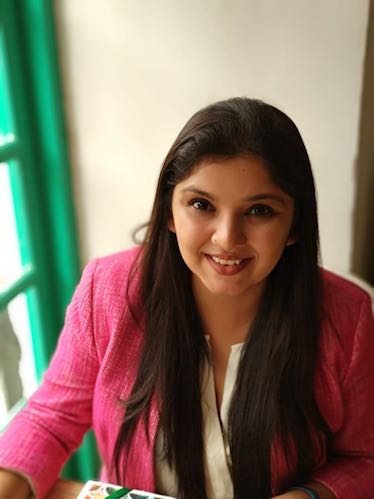
Kadambari Mehta
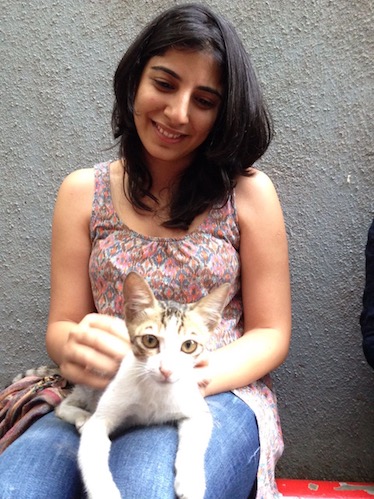
Kiran Wadhwa
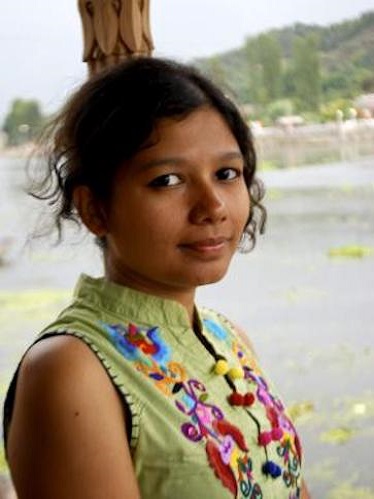
Shubhangi Swarup
Now
Whatever the reason may have been to start reading, it’s a habit one can never get rid of. Once a reader, always a reader, in fact, once a book-lover, always a book-lover. However, as we’ve grown older, a lot of us are now reading not just for pleasure but also for specific reasons. I find myself picking up not only more books but also a greater variety because of work. Just recently, I read an LGBT themed collection of erotic short stories as part of The Extraordinary Reading Challenge– a genre I would have never explored under ordinary circumstances.
Like me, Mehta also reads for work and finds that reading helps her as a content writer. She can target different industries as books provide her with a gateway to many different worlds, and she can write content, irrespective of which industry she is writing for, because of it. But probably just as importantly, she reads because she wants to have a relationship with her daughter, similar to that which she has with her dad. She wants to be a good role model for her daughter and wants her to know that reading is a great hobby.
Wadhwa chose to study literature because of her love for reading, which was perfect for chosen career as a journalist. She strongly believes that all books come out of a socio-politico context and that reading gave her the grounding she needed to become a successful journalist. However, she soon quit being a journalist because, and I quote, “books gave me the idealism to become a journalist, and the world around me broke that down.” It is a pity but that is a “danger” one has to associate with books, they can influence you into doing something, but what presents itself in a book may not always be the reality. This reminded me of my business partner, Devanshi’s ‘famous’ story- she went to boarding school expecting a Malory Towers-esque experience, only to be rudely shocked because it was nothing like it. She did eventually love it for what it was and it is a decision she doesn’t regret.
Hemingway once famously said “There is nothing to writing. All you do is sit down at a typewriter and bleed.” While a typewriter may have become a computer, it remains true that reading gives you a glimpse of an author’s thoughts. For Swarup, like many of us, books and reading in general, even if it’s a good longform piece on the Internet, are a way of engaging with the world. By getting to know others’ thoughts, we allow them to influence us or even shape the way we think. This is why Swarup chose to become an author. She especially credits Echoes Of An Autobiography as an inspiration for her to take up writing. During her travels, she makes it a point to pick up local literature and books with local folk tales as she finds them raw and more moving than a lot of sophisticatedly written international bestsellers. In fact, while travelling in Myanmar, she came across a book of local folk tales that left such an impression on her that part of her book is now set in the country.
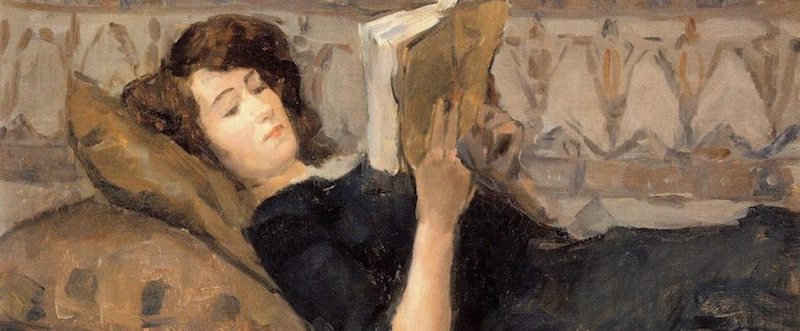
(Source: Women’s Web)
And Going Forward
I’ve realised that books can actually solve a lot of problems and seem to be full of answers. You’ll find prosaic solutions for basic questions to answers for tougher questions on morality and life-struggles, for subjects as varied as monogamy or raising children. Take Wadhwa’s case, she immediately turns to a book when she needs answers, any answers. Even if her trusty books sometimes don’t give her a direct answer, they give her direction, and help her with any problem she may have- whether existential or practical. This is the reason she has made reading every night a habit- no matter if it’s only a few pages, she doesn’t get sleep till she reads.
Mehta, on the other hand, believes that when you need it the right book just comes to you. She takes it one step further by saying that even if you don’t have a question, you will often read something that will provide you with an answer you didn’t know you needed. I couldn’t help but remember my journey starting The Curious Reader– I turned to a dozen start-up books, for insight, advice and of course, for answers to my many questions, with Zero To One being my absolute favourite.
Swarup, turning my theory on its head, said that she doesn’t turn to books for answers but for questions. There was amusement in her voice, as if she was about to question me- ‘don’t you?’ I completely agreed with her when she said that the best writers are those who have shown her something she hadn’t seen till now.
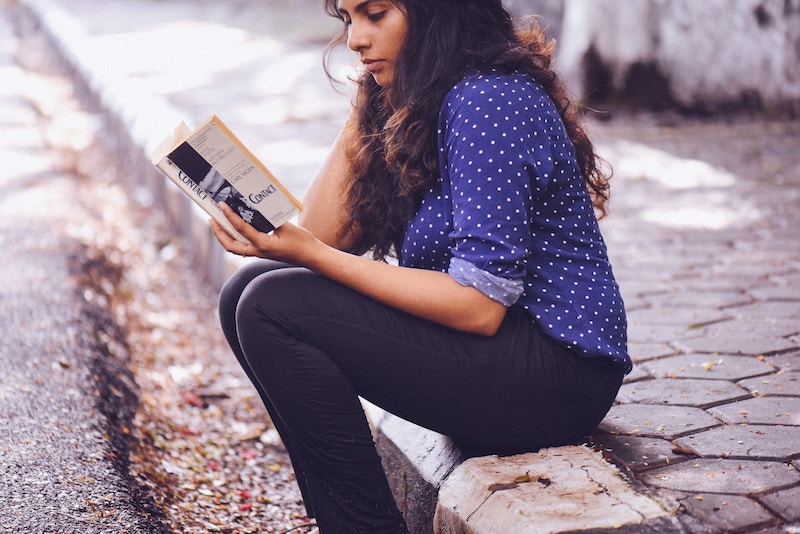
Any reader will tell you that reading is not something ‘they do’, it’s more than that- it’s who they are. Some people read for fun, some for work, some for education, and some only when they’re bored and their TV is on the fritz. It doesn’t matter if someone has read one book or read a million, if someone reads one book a year or a thousand. Reading doesn’t have to be a discipline, a must or essential, but at the same time, it is absolutely essential to our growth, our development, our well-being, and for our souls. And after all, this is precisely why we read.

As a young boy, Nirbhay had the annoying habit of waking up at 5 a.m. Since television was a big no-no, he had no choice but to read to entertain himself and that is how his love affair with books began. A true-blue Piscean, books paved the path to his fantasy worlds- worlds he’d often rather stay in. Nirbhay is the co-founder and publisher of The Curious Reader.
You can read his articles, here.

